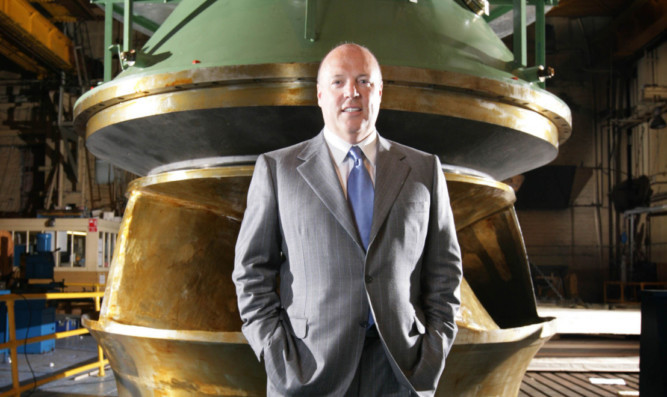Knowing your customers and giving them what they want is a basic rule of business success which is as valid in the challenging economic conditions of today as ever.
So says leading Scottish businessman Jim McColl keynote speaker at The Courier’s first Business Briefing, at the Old Course Hotel in St Andrews on April 16.
“Succeeding in business is about being forensic in market intelligence, really knowing your customers,” said the man who left school at 16 for a career that has taken him to the head of global engineering group Clyde Blowers.
“You have to take the time and effort to understand the details of your market: the regional areas and differences, the competition, access to market opportunities, the setting of targets and what you have to do to reach them.
“You also have to keep your targets under constant review, and to keep asking yourself questions if things aren’t going right.
“You have to ask yourself what you may have to do differently to get to the end result.”
Mr McColl learned a valuable technique for reviewing aims and activities from Buddhism, and it is one he commends to others.
“I use meditation to go over goals, and find it a really worthwhile exercise.”
He spent some time with Buddhist monks who taught him how to develop his concentration skills to see things clearly.
“Once you set goals you use meditation to review them regularly daily, weekly, monthly to see where you are and if you need to do things differently to reach the goals you have set,” he revealed.
“Meditation has helped me achieve positive results in my business.”
Starting a business is one thing, but staying in business can be quite another as we are constantly reminded when news breaks of commercial casualties, often concerning companies that appeared to be going well.
He advised: “One very important thing for a company is to keep a very tight grip on cash flow, especially just now when it is very difficult to get debt finance.
“A company may be going well and have plans for growth, but if the cash flow is not right the company may run into trouble. In these circumstances it may be better to slow down growth than to go into debt.”
Jim appreciates the support that banks and agencies like Scottish Enterprise give to business, and thinks there are times when their interests are not properly understood by a sceptical business community frustrated when propositions do not receive the financial backing being sought.
The agencies do have to think seriously and investigate requests before they decide to advance finance, but he admitted: “If there is room for improvement I would say that the process they adopt can sometimes be too bureaucratic, and it would benefit from being more streamlined so that decisions can be made quicker.”
